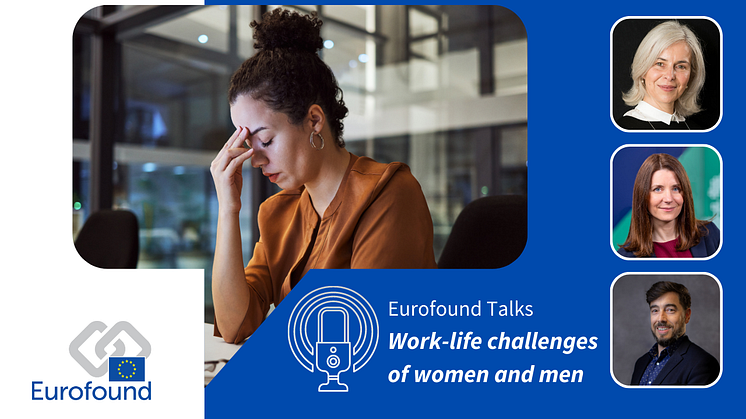
News -
Eurofound-commissioned survey indicates over 80% of workers receive work-related communications outside of normal working hours
Over 80% of workers in a Eurofound-commissioned survey of employees in Belgium, France, Italy and Spain report receiving work-related communications outside their contractual working hours during a typical working week. Almost three-quarters reported being contacted by colleagues out of hours every day, or on some days. The vast majority (almost 9 out of 10) of respondents responded to at least some of these communications.
Eurofound’s new report Right to disconnect: Implementation and impact at company level looks at the impacts of the right to disconnect on working time, work-life balance and wellbeing in four countries, and offers a broader analysis on how an ‘always on’ culture is leading employees in Europe to work additional and often unpaid hours.
Eurofound’s research shows that adequate enforcement of right to disconnect policies is crucial to their effectiveness. Around 45% of workers surveyed responded that a right to disconnect policy is in place in their company. Of these, 80% consider that the policy applies to them, but only half of respondents in companies with a right to disconnect policy are aware of actions having been taken to implement it.
The most common actions taken to support disconnection from work-related digital tools are measures to prevent the delivery of work emails during certain times. Soft measures, such as training and awareness raising, were considered to be less prevalent by employees.
Many employees feel a strong sense of obligation to respond to out-of-hours work-related communications: feeling responsible for one’s assignments (82%), wishing to stay ‘on top of things’ (75%), because it is expected (75%), fear of a negative impact if no response is provided (61%) and the expectation of better career progression (50%) were given as the most common reasons for doing so.
While most respondents to the survey were satisfied with their working conditions, around 45% of respondents felt that being contacted out of hours was detrimental to their work–life balance and their health and well-being, with more women than men reporting this. A larger share of 25- to 39-year-olds are negatively affected, likely because many in this group have young children. Remote workers are also more affected than those working entirely from their employer’s premises.
The report concludes that, where right to disconnect policies have been put in place, they have a positive effect on work–life balance, health and well-being, and overall job satisfaction.
Company-level evidence shows that the implementation of a right to disconnect policy on its own is insufficient to bring about cultural change in the workplace; the policy must be accompanied by awareness raising, training and effective measures to limit out-of-hours connection in ways that are tailored to specific work environments.
Following the rise in telework during the pandemic, there has been increasing policy debate around the right to disconnect. Since 2020, six Member States have adopted or amended legislation containing a right to disconnect (Belgium, Croatia, Greece, Luxembourg, Portugal and Slovakia). This is in addition to the countries having relevant legislation in place pre-pandemic (Belgium, France, Italy and Spain). In these countries, available evidence shows an increase in sectoral and company level agreements including a right to disconnect. In January 2021, the European Parliament passed a resolution on the issue. Recently, European cross-industry social partner negotiations concluded without agreement.
- Download the report: Right to disconnect: Implementation and impact at company level




